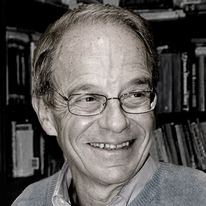- About MAA
- Membership
- MAA Publications
- Periodicals
- Blogs
- MAA Book Series
- MAA Press (an imprint of the AMS)
- MAA Notes
- MAA Reviews
- Mathematical Communication
- Information for Libraries
- Author Resources
- Advertise with MAA
- Meetings
- Competitions
- Programs
- Communities
- MAA Sections
- SIGMAA
- MAA Connect
- Students
- MAA Awards
- Awards Booklets
- Writing Awards
- Teaching Awards
- Service Awards
- Research Awards
- Lecture Awards
- Putnam Competition Individual and Team Winners
- D. E. Shaw Group AMC 8 Awards & Certificates
- Maryam Mirzakhani AMC 10 A Awards & Certificates
- Two Sigma AMC 10 B Awards & Certificates
- Jane Street AMC 12 A Awards & Certificates
- Akamai AMC 12 B Awards & Certificates
- High School Teachers
- News
You are here
MAA Distinguished Lecture: Game Theory and the Humanities
By Steven Brams
 Thursday, November 14, 2013
Thursday, November 14, 2013
6:30-7:30 pm
MAA Carriage House
Abstract: While game theory finds frequent application in economics, political science, psychology, sociology, and evolutionary biology, mathematical calculations of strategic choice are seldom associated with the worlds of literature, history, philosophy, religion, or law.
But game theory can illuminate wrenching choices, including those fueled by such emotions as anger, jealousy, or love. These will be illustrated by some of the following: Abraham's biblical decision to offer his son, Isaac, for sacrifice when God commanded him to do so; difficult and sometimes murderous choices of characters in Aristophanes’s Lysistrata, Shakespeare's Hamlet and Macbeth, and Joseph Heller’s Catch-22; and historical choices by the Supreme Court, presidents, and other leaders, especially in crises and wars.

Biography: Steven J. Brams is Professor of Politics at New York University and the author, co-author, or co-editor of 18 books and more than 250 articles. His books include Theory of Moves (Cambridge, 1994) and, co-authored with Alan D. Taylor, Fair Division: From Cake-Cutting to Dispute Resolution (Cambridge, 1996) and The Win-Win Solution: Guaranteeing Fair Shares to Everybody (Norton, 1999). His newest books are Mathematics and Democracy: Designing Better Voting and Fair-Division Procedures (Princeton, 2008) and Game Theory and the Humanities: Bridging Two Worlds (MIT, 2011). He holds two patents for fair-division algorithms and is chairman of the advisory board of Fair Outcomes, Inc.
Brams has applied game theory and social-choice theory to voting and elections, bargaining and fairness, international relations, and the Bible, theology, and literature. He is a former president of the Peace Science Society (1990-91) and of the Public Choice Society (2004-2006). He is a Fellow of the American Association for the Advancement of Science (1986), a Guggenheim Fellow (1986-87), and was a Visiting Scholar at the Russell Sage Foundation (1998-99).
News Date:
Wednesday, October 23, 2013
Category:




